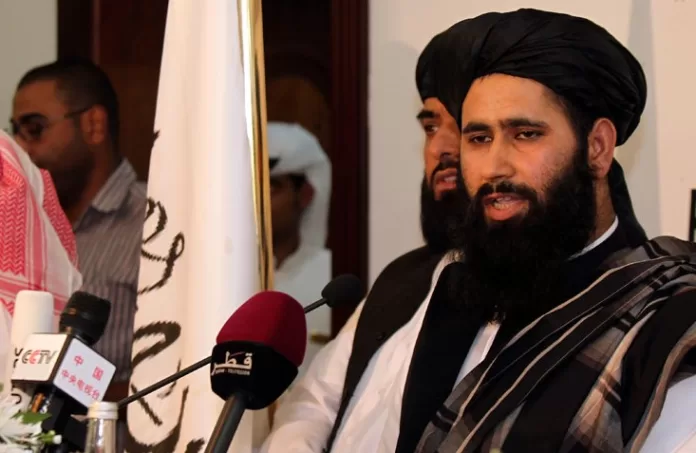The negotiation phenomenon has officially started and temporarily barred between the US and the Afghan Taliban at Doha. The Karzai administration is also on board with a few reservations. However, reservations are becoming a stumbling block not only against the US but also for the entire dialogue process. The way Karzai is pronouncing statements against the US, the Taliban and the Pakistan’s military establishment, one feels as he is least interested in a positive outcome of the Doha progression. Karzai seems to be a leader of a group who became the President by luck and whose close advisors were made up of the anti-Taliban establishment in the post 9/11 era. This is the high time that Karzai must act now or everyone in Afghanistan fail. Indeed he deserves support of the comity of nations but stakeholders in Afghanistan need to see progress on security, reconciliation, and governance by now. The Doha Process will inspire confidence in the Taliban for a successful conclusion of negotiations, and would establish a base on which Afghanistan’s politics would develop.
Without being overly sensational, the Doha negotiation is the make or break process of whatever impact the negotiating parties are going to have on Afghanistan and entire region for more than a decade. Americans cannot afford to fail and the Taliban cannot maintain the status quo. The US wants a conclusion of the War on Terror with the Taliban by 2014. The Taliban are now mature than pre 9/11 era. Hence a shift in their thoughts has forced them to sit on negotiating table and to ‘sleep(ing) with the enemy’ in Doha. Back there in Afghanistan, the negotiating but warring parties are still at the daggers drawn. Hence, in spite of some notable progress, the situation is deteriorating far more rapidly than most are willing to acknowledge.
Therefore a few drastic but important decisions must be taken in view before proceeding further. Besides negotiations in Doha, in Afghanistan, a significant short term strategy is required to control the Afghan Capital from subversive activities, keep order in the country, and provide enough security for nation-building efforts. This will increase the US bargaining position in Doha vis-à-vis the Taliban.
There is also a need to create a decentralized federal system of Pakhtun, Tajik and Uzbek regions. Such plan owes a lot to the complex arrangements that had been implemented in Bosnia to stop the civil war between the Serbs, Muslims and Croats. The effects of federalism can be taken from Pakistan where the 18th amendment has given tremendous powers to the provinces and their nagging against each other has stopped forthwith. Thus political and militant forces pulling Afghanistan apart could be disappointed by either federalism or decentralized political system. Any such suggestion will further contribute to the Doha negotiation process.
A decentralization of power in Afghanistan must be accompanied by arrangements to ensure that all ethnic groups would have proportional share in the country’s national wealth. Besides, more effective schemes to rebuild the country’s infrastructure uniformly and without any prejudice to any specific region would diminish any future resurrection of insurgency. This all must be included in peace process between the warring parties at Doha.
Afghanistan has been more ruined by the proxy wars sponsored by its neighbors than by its own war lords. Reducing the neighboring countries undue interference in the internal affairs of Afghanistan is in everyone’s interests to stabilize Afghanistan. But current course has no prospect of success as no international instrument of law is used to bar foreign hands inside Afghanistan. In the circumstances, a regional nonaggression pact between the neighboring countries will not only bring peace between its neighbors but would also guarantee Afghanistan’s serene future. Therefore, to involve neighbors, either of the two ways may be adopted at Doha: The neighboring countries may be asked to sign the peace deal between the US and the Taliban as guarantors; or they may be included to pledge non interference in Afghanistan. In both cases, all outsider entities would be stitched into a pact by which their undue and mala fide role would be contained.
As Afghanistan is taking a rebirth from its past internal strives and conflicts, international financial assistance would be the bottom line of running such a nascent state. Many countries have pledged Afghanistan much but delivered extremely less. They need to promise more than less and little than too much. This will secure them from embarrassment.
Our shortsightedness for far-sighted issues is going to cost us a lot. Americans considered the War on Terror as a phenomenon of months whereas it was the matter of years. Hence a short-war strategy was applied for a long war. That was their problem which engulfed them. The need of the time is to learn from the mistakes of others and do not befool ourselves by committing the same mistakes for learning. We need to initiate a dialogue process to deal with the Tehreek-e-Taliban Pakistan (TTP). The sooner we convert them from militant nature to the political discourse, the better will it be not only for the new federal government in Islamabad but also for the people of this country- the Pakistanis. Doha process is a lesson for us. Does the Doha timeline match our timeline? We need to establish the benchmarks.




